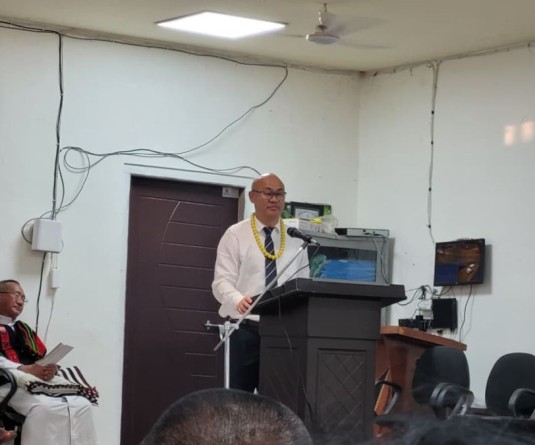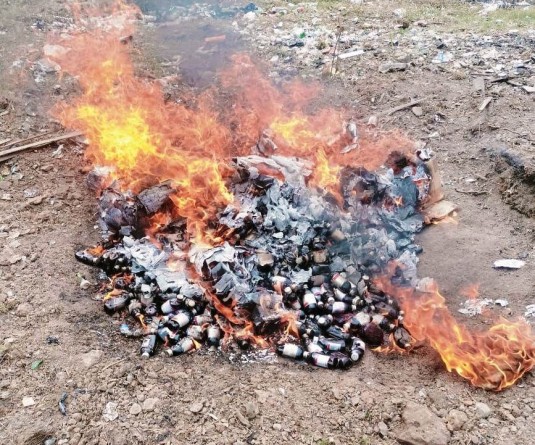Weavers availing health services during the International Women’s Day held at the Government High School, Middle Khomi on March 8.
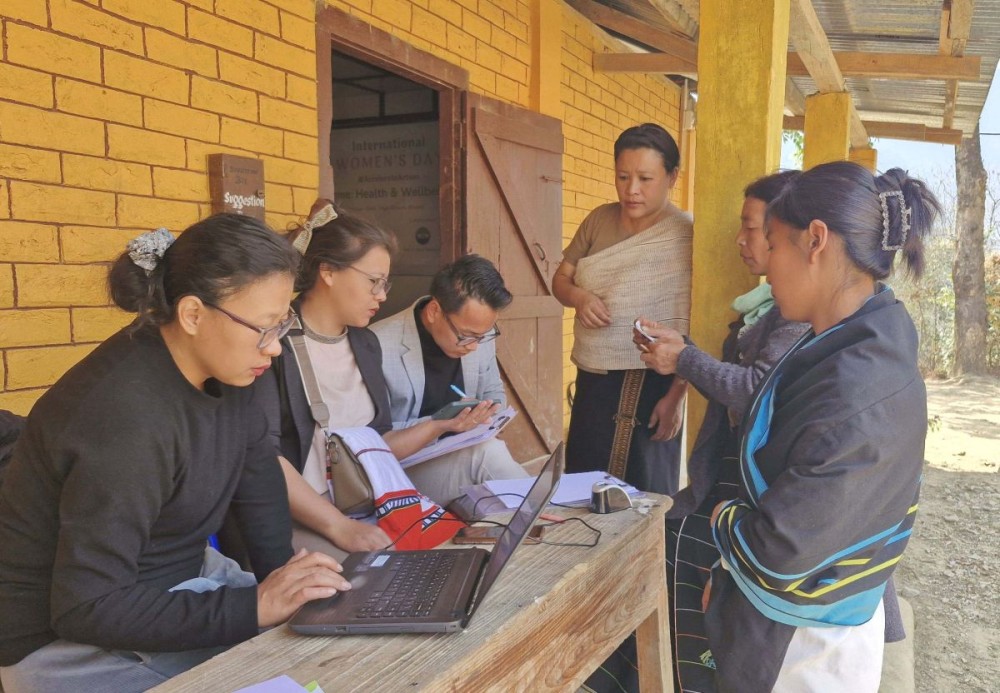
Phek, March 9 (MExN): Nenterprise, in collaboration with North East Network (NEN), Nagaland, commemorated International Women’s Day (IWD) on March 8, at the Government High School, Middle Khomi, Phek district, under the theme “Health and Wellbeing.”
The event brought together about 120 weavers from six villages and 66 students from Government High School, Middle Khomi, stated a press release received here. The IWD event was also marked by facilitating women’s access to health services. 38 weavers availed blood group testing, 74 availed blood pressure checks, and 8 weavers were issued health cards.
The IWD event was marked by awareness sessions on food and nutrition, Non-Communicable Diseases (NCDs), women’s reproductive health and childcare, personal safety education for students, and health and wellness.
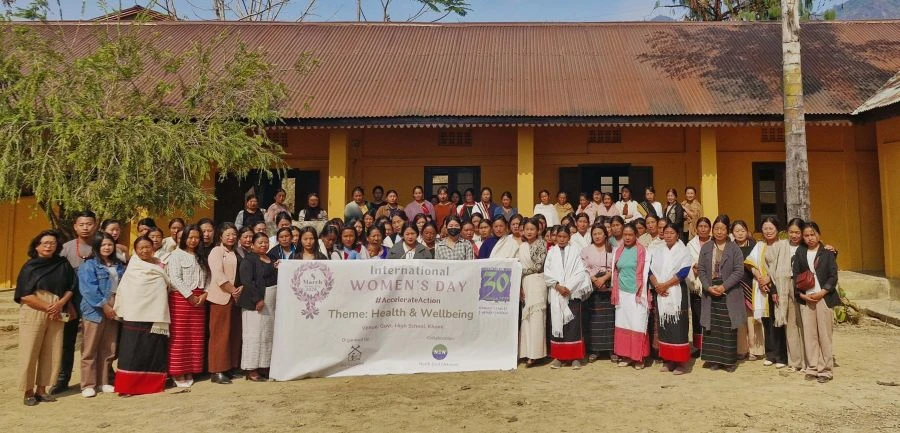
Tuku Venuh led the first session, focusing on the importance of women’s health and nutrition. He emphasized the significance of consuming nutritious foods, highlighting the detrimental effects of nutritional deficiencies prevalent in tribal areas, including iron, calcium, protein, and vitamin deficiencies.
Venuh differentiated between common and traditional (indigenous) foods, advocating for the consumption of local produce like chameleon plant over common foods like cabbage. He outlined essential nutrients for tribal women—iron, calcium, protein, folic acid, and vitamins A and C—and proposed community actions for better nutrition, such as establishing kitchen gardens and organizing awareness programmes. He concluded with a call to action: “Eat local, eat healthy; small dietary changes can make a big health impact; healthy women, stronger communities.”
Zuhuvelu, Community Health Officer (CHO), addressed non-communicable diseases, focusing on cardiovascular diseases, diabetes, chronic respiratory diseases, cancer (particularly breast and throat cancer), and mental health disorders. She discussed risk factors and prevention strategies, including balanced diets, exercise, tobacco cessation, stress management, and genetic awareness.
She stressed the importance of early screening, including annual blood pressure checks and monthly breast self-examinations, and highlighted the availability of free cancer and NCD screenings. She also emphasised the importance of knowing one’s blood group.
Zuhuvelu continued with a session on women’s reproductive health and childcare, targeting weavers under 40. She provided a practical demonstration of breast self-examination and discussed menstrual hygiene, advocating for the use of cotton sanitary pads and mild soaps. She introduced government schemes like Surakshit Matritva Aashwasan (SUMAN) and Pradhan Mantri Matru Vandana Yojana (PMMVY), which offer maternity benefits. She also covered family planning, emphasizing the importance of consulting medical professionals before using hormonal contraceptives, and discussed childcare, including breastfeeding and deworming. She stressed the importance of folic acid and calcium supplements.
Parallel sessions were conducted for students on personal safety education. Kediu from NEN introduced students to local herbal plants, highlighting their medicinal values and usage. Students participated in a hands-on activity, identifying and documenting local herbs on the school campus.
Tshekhroweu and Tshenyilou from NEN conducted a session on body mapping and safe and unsafe touches. Students mapped their body parts and learned to identify private body parts, safe places, and safe behaviors. They were taught to recognize and respond to unsafe touches, learning the five safety rules: say no, do not keep secrets, shout and get away, tell a trusted adult, and remember it is never your fault.
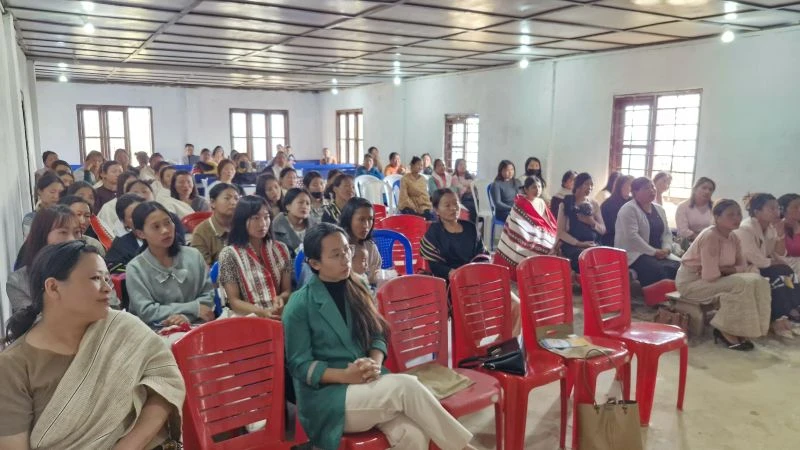
Metsheu Khalo Letro, Probation Officer VCH, addressed the significance of IWD, emphasizing women’s equality. She debunked common misconceptions, clarifying that equality does not mean competition but the right to live free from violence and discrimination. Sharing her personal experiences growing up in a single-mother household, she discussed societal stereotypes, financial discrimination, and emotional challenges.
She highlighted signs of good and poor mental health and discussed the challenges faced by students, including lack of access to mental health resources, stigma, and social isolation. She offered solutions such as mental health education, counseling, and peer support.



